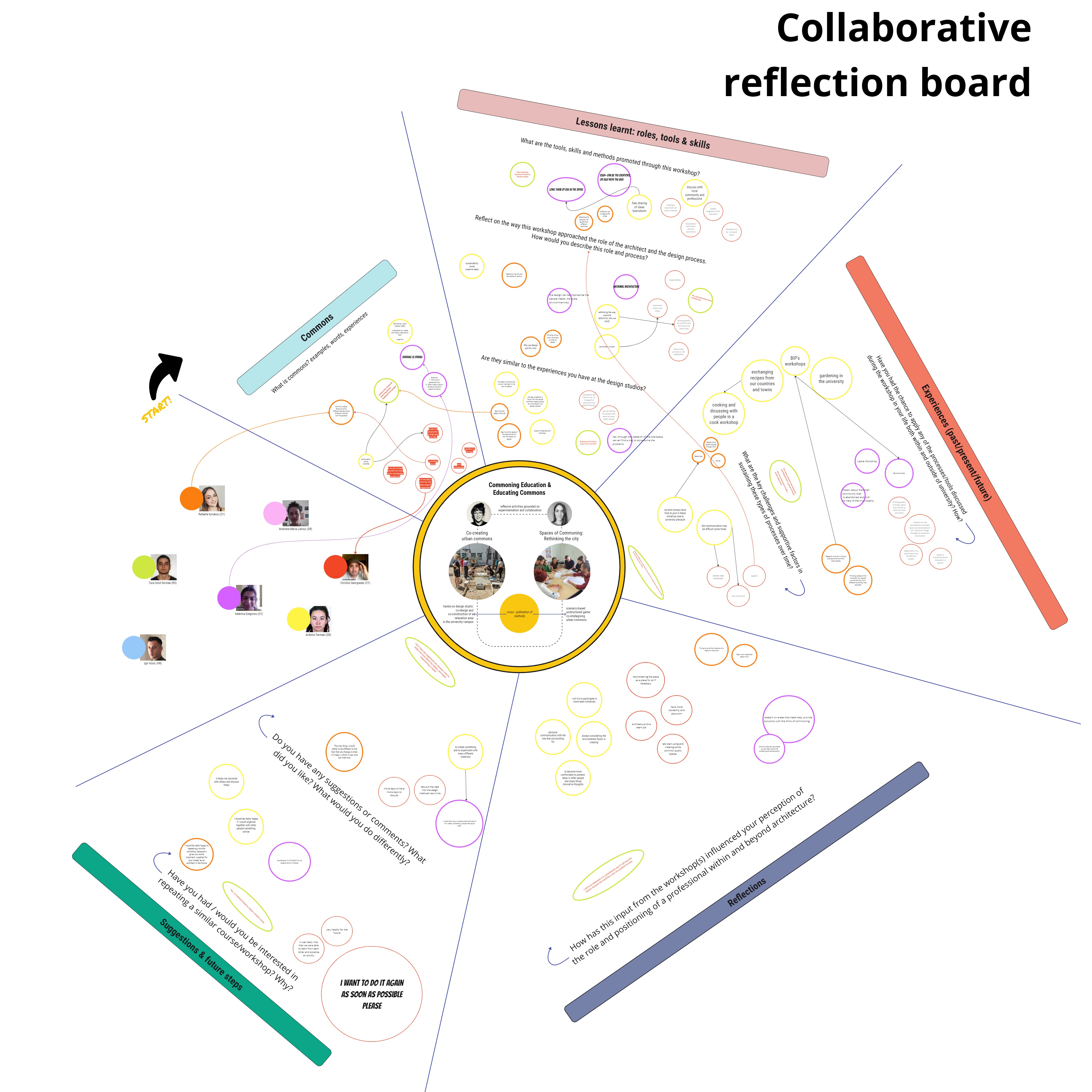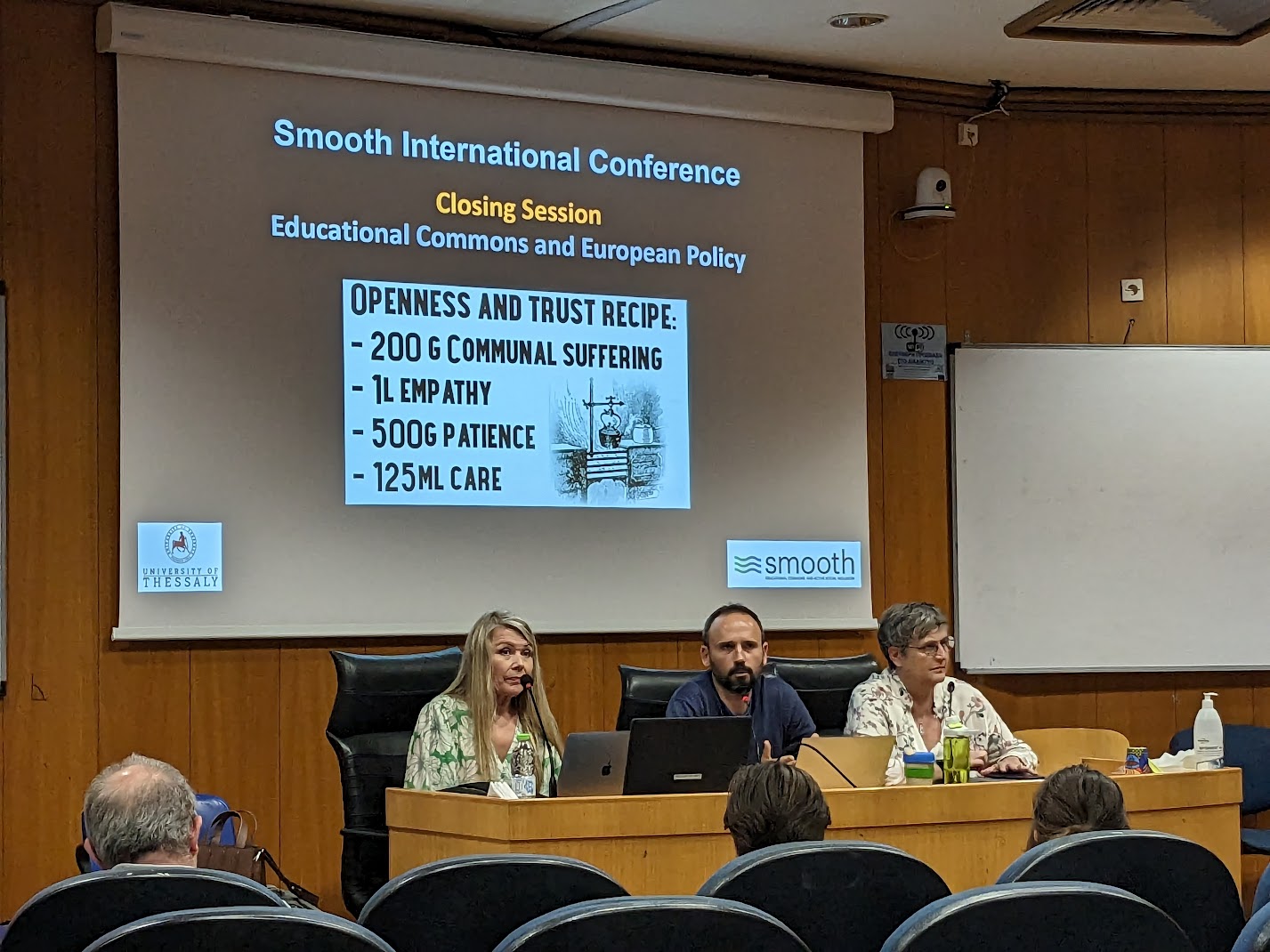Architectural education as commons: Smooth Conference
Posted on 07-06-2023
Last week I had the chance to participate in the three-day Smooth conference: Educational commons and active social inclusion in Volos, Greece, which brought together academics, educators and practitioners in various fields to discuss the implications of the commons for refiguring education and, as the organisers of the conference argue, and I agree, social change in general. By sharing experiences through presentations and workshops, the objectives of the conference were to bring into light diverse practices in terms of geographical, social and institutional characteristics and stress key challenges and opportunities of a commons-oriented education in reversing inequalities and informing political decision-making processes.
The emerging paradigm of commons became popular thanks to the fundamental work of Elinor Ostrom (1990) and is manifested on various examples of social formations around the co-governance of shared resources, based on values of co-responsibility, care, collaboration, sharing, and equality. The notion traditionally refered to natural resources but has been extrapolated in multiple domains, such as the urban realm, and seen as an emancipatory alternative to neoliberal tactics, such as the commodification and privatisation of public assets, offering in response self-sustainable social mechanisms of sharing urban resources, facilitated through social processes of commoning [1].
Understanding education as commons denotes a paradigm shift towards an action system that acknowledges students, their families and often local social groups as active actors in the educational process, fostered by commoning activities as pedagogical tools that promote collective decision making, inclusivity, openness and responsibility.
Whilst my interest focuses on the practical side of commons and specifically the contribution of space and in extension the potential role of design professionals in the development of urban commons practices, I find it intriguing to discuss architectural education becoming not only a commoning process itself, but a commoning process that equips architects with significant skillsets for practicing urban commons.
In other words, I find it urgent to explore how architects gain knowledge on urban commons through commoning.
This was the driving question of our presentation “From teaching the commons to commoning teaching: towards a reflexive architectural education”, in which together with my friend Phryne Rousou and my supervisor dr Alexandra Paio we discussed the cross-pollination of our primary findings of two last year’s educational activities, to understand the contribution of commoning as a tool for knowledge production towards the development of social and operational skills of the future professionals. The first activity was a hands-on co-design and build workshop implemented in prototyping a relaxation area at the university campus in Nicosia, and the second, a scenario-based unstructured game of co-strategising urban commons in an empty plot at the university campus in Lisbon.
Along with our presentation, the focus of our session “Space and commons in education” covered a broad range of the understanding of commons in the field of architecture and engineering: from educational resources shared in common by the educational community and the society, such as open libraries of digital design and construction, participatory reuse of materials and knowledge; to methods of interactions across disciplines.
Most importantly, conceptualising architectural education through the ethics of commons lifted considerations on the role and positioning of future professionals, that imply inventing complex senses of democratic identities and transferable skills, while fostering links between educational and non-educational spaces and challenging constitutive processes, educational methods and existing epistemological references.
_____________
[1] More information on the definition of urban commons can be found here.
Reference
Ostrom, E. (1990) Governing the Commons: The Evolution of Institutions for Collective Action. Cambridge: Cambridge University Press. doi: 10.1017/cbo9780511807763.



